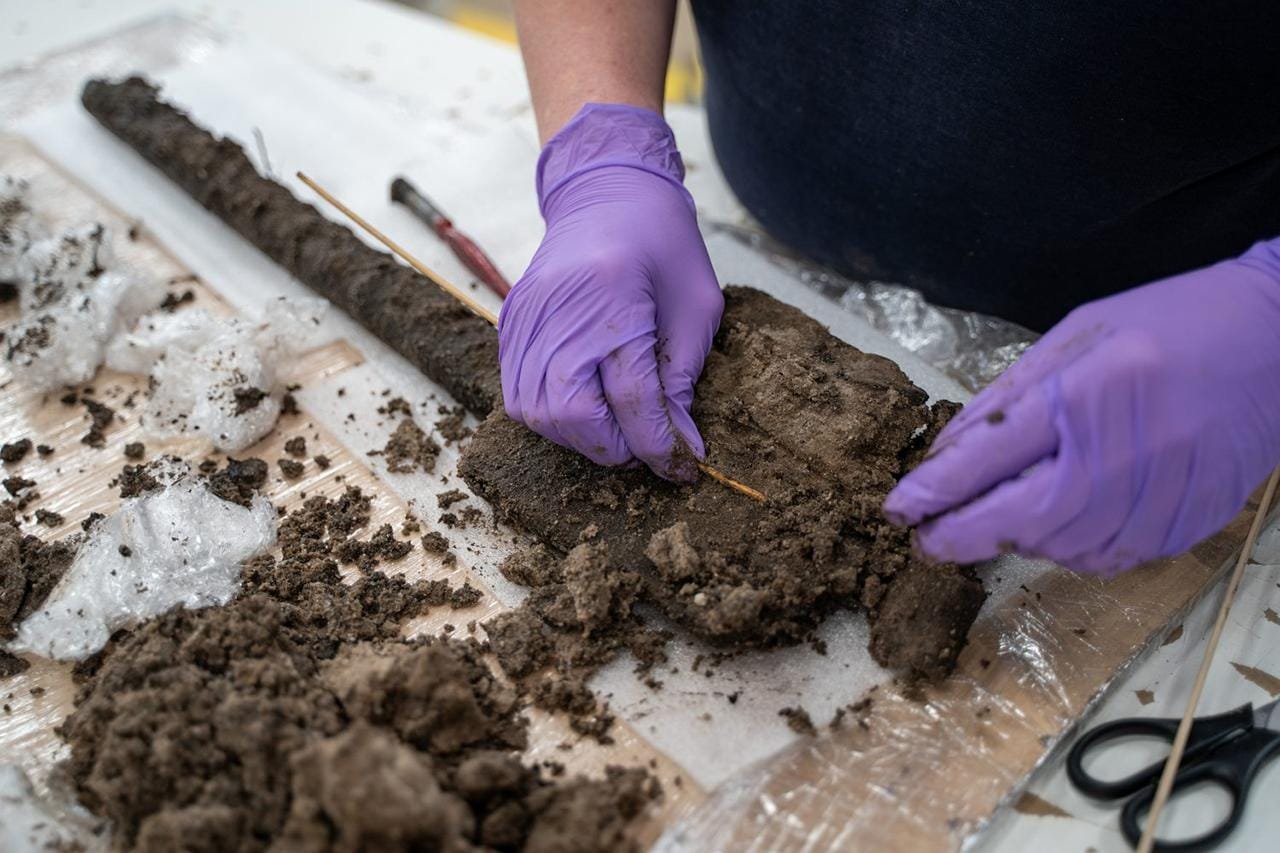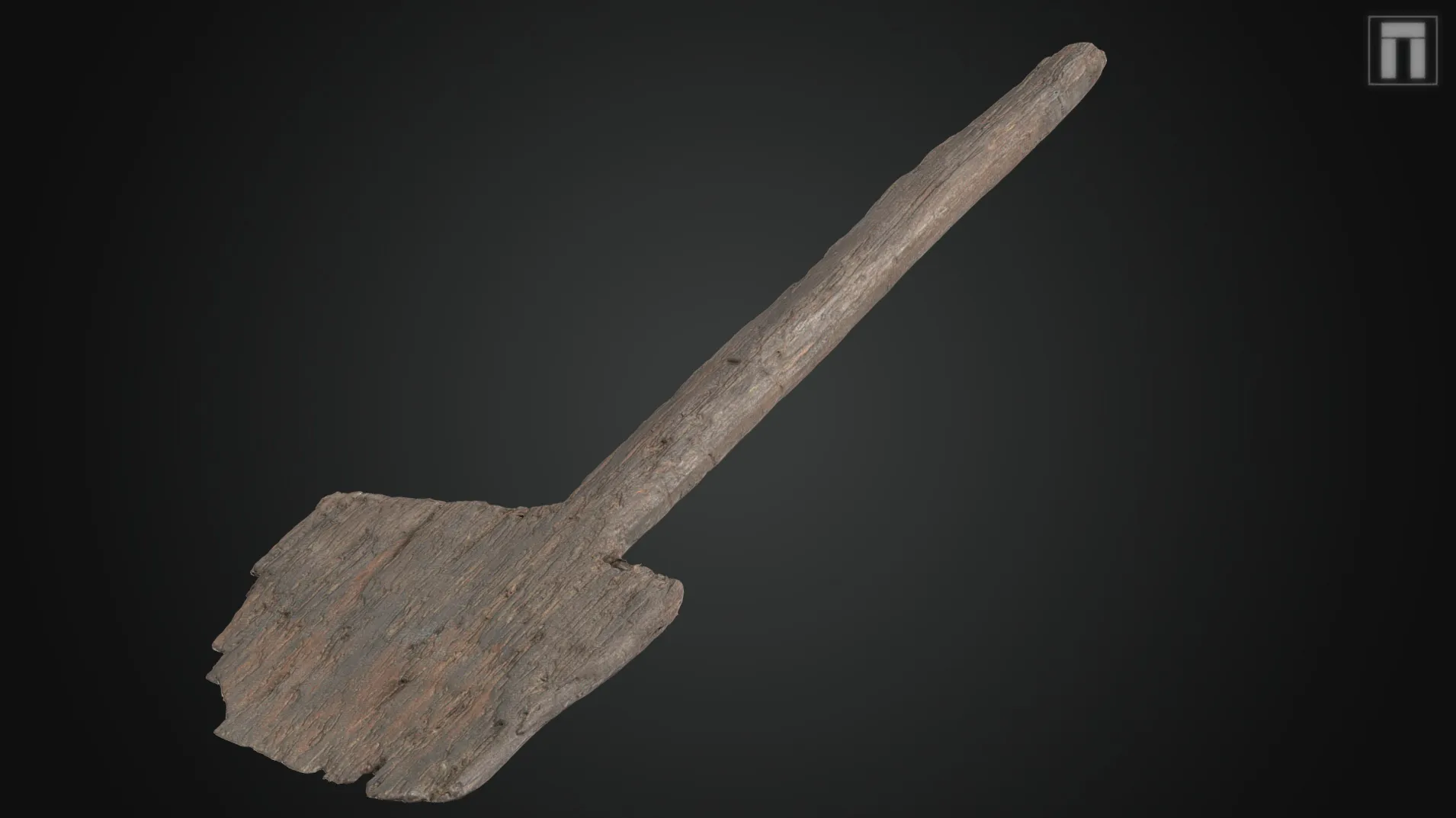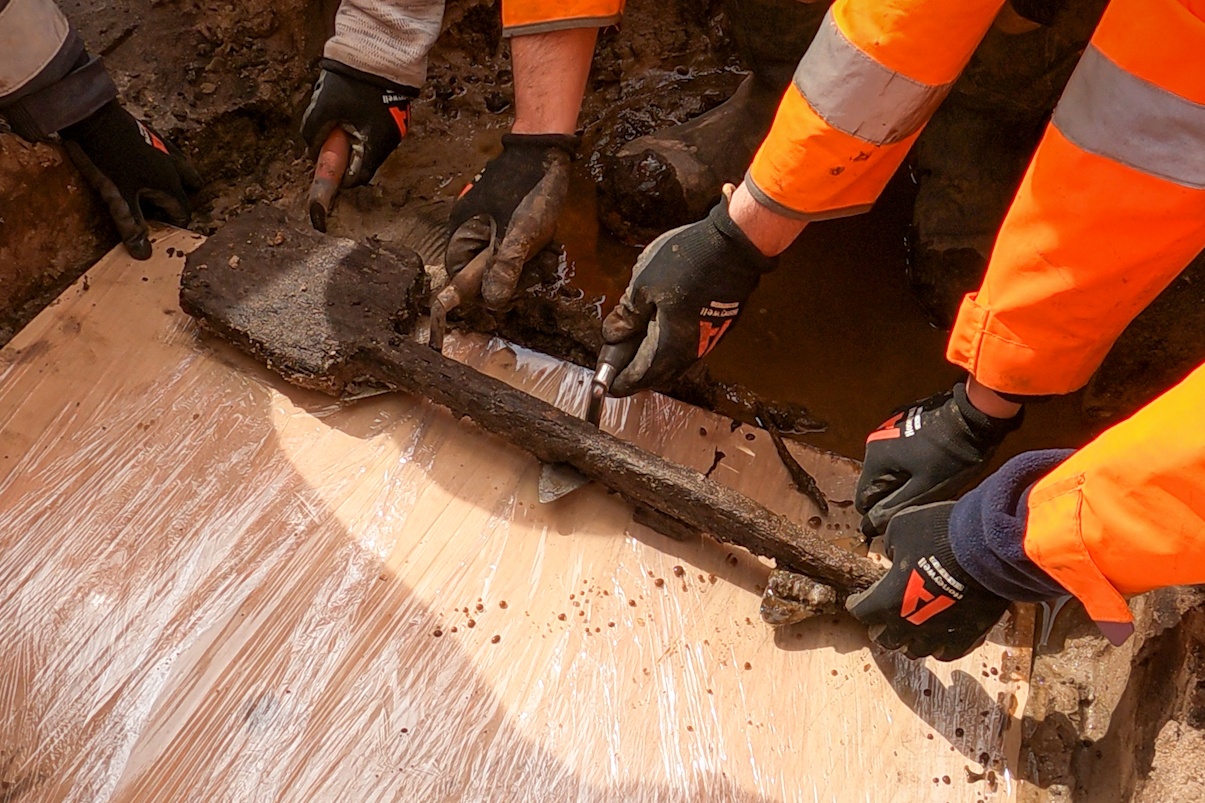In a groundbreaking archaeological discovery, researchers working on the Moors at Arne project in Dorset, England, have uncovered a remarkably well-preserved 3,500-year-old wooden spade. This rare find offers a valuable glimpse into the Middle Bronze Age and is considered one of the oldest and most complete wooden tools ever discovered in the UK.
Table of Contents
ToggleThe Discovery and Its Significance
The ancient spade was found buried in the waterlogged soils of Poole Harbour, a region currently undergoing an ambitious restoration as part of a 150-hectare wetland habitat project. This initiative, designed to combat the effects of climate change, seeks to restore local ecosystems while preserving the region’s rich archaeological heritage. The preservation of the wooden spade has been attributed to the unique waterlogged environment, which naturally slowed the decay of organic materials over millennia, allowing the tool to survive in exceptional condition.

The discovery is significant not only due to the age of the artifact but also because wooden tools from this period are exceptionally rare. Organic materials, especially wood, usually decay over time, making the preservation of this spade an extraordinary find in British archaeology. The excellent state of the tool allows researchers to study the craftsmanship, materials, and daily life of Bronze Age communities, offering a direct link to the past.
A Glimpse into Bronze Age Life
The 3,500-year-old spade is thought to have been used for agricultural or construction purposes, offering valuable insight into how people during the Middle Bronze Age worked the land and constructed structures. These early tools would have been essential for farming, gathering resources, and creating infrastructure. The presence of such tools in the archaeological record suggests that the people who lived in this area had a sophisticated understanding of their environment and the tools required to manage and sustain their communities.

This discovery highlights the resourcefulness of Bronze Age communities in southern Britain, shedding light on their agricultural practices and daily activities. The spade’s preservation also provides an excellent opportunity to examine the techniques used in its manufacture, the types of materials chosen for the tool, and the potential social structures that may have governed the production and use of such implements.
The Role of Poole Harbour in Archaeology
Poole Harbour has long been a hotspot for archaeological discoveries, with previous finds providing critical insights into prehistoric life in southern Britain. The region’s waterlogged environment has proven to be a unique preservation condition, allowing organic materials to remain intact for thousands of years. The combination of natural preservation and the archaeological potential of Poole Harbour has made it a focal point for ongoing research and excavation.

The Moors at Arne project is part of a broader effort to explore and protect the historically rich area of Poole Harbour. As the restoration of the wetland habitat progresses, the project aims to enhance local biodiversity and simultaneously protect the region’s archaeological resources. This dual-purpose initiative is proving beneficial not only for the environment but also for archaeology, as the conditions of Poole Harbour continue to yield significant prehistoric finds. As the project advances, more discoveries are expected, offering further insight into the lives of the ancient people who once inhabited this region.
Looking to the Future
The discovery of the 3,500-year-old wooden spade is just the beginning. As restoration efforts continue and excavation work expands, archaeologists anticipate more prehistoric artifacts will be unearthed, providing a deeper understanding of Bronze Age Britain. These new discoveries will continue to offer a tangible connection to the past, enriching our knowledge of the agricultural, social, and technological practices of ancient civilizations.
In the face of modern environmental challenges, this discovery also serves as a poignant reminder of the importance of preserving both our natural environment and our cultural heritage. The protection of wetland habitats, like those in Poole Harbour, not only supports local ecosystems but also safeguards ancient artifacts that can help us piece together the lives of our distant ancestors. By combining efforts to combat climate change with the exploration of our archaeological past, we ensure that future generations can continue to learn from and appreciate the rich history of the human race.

